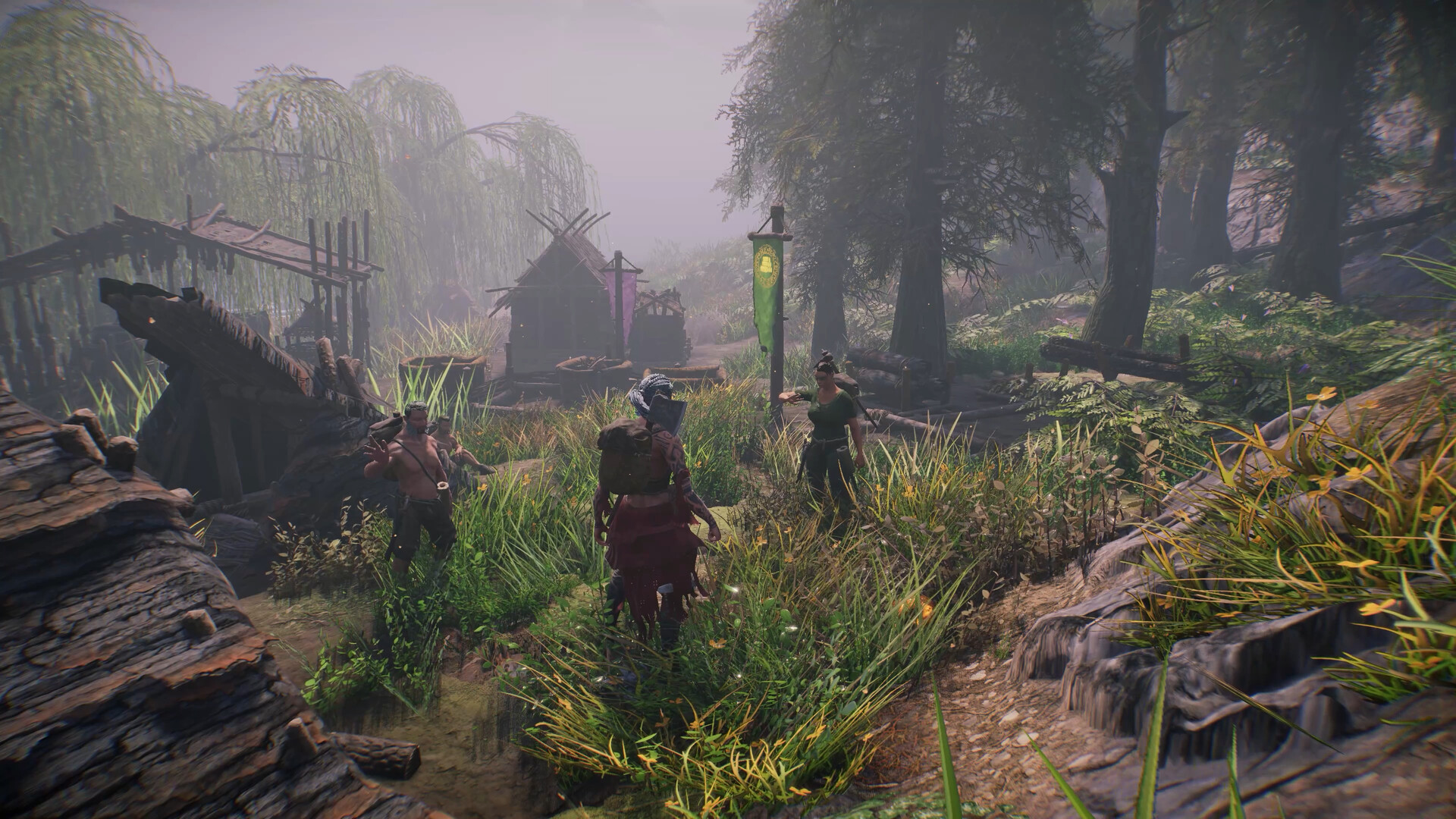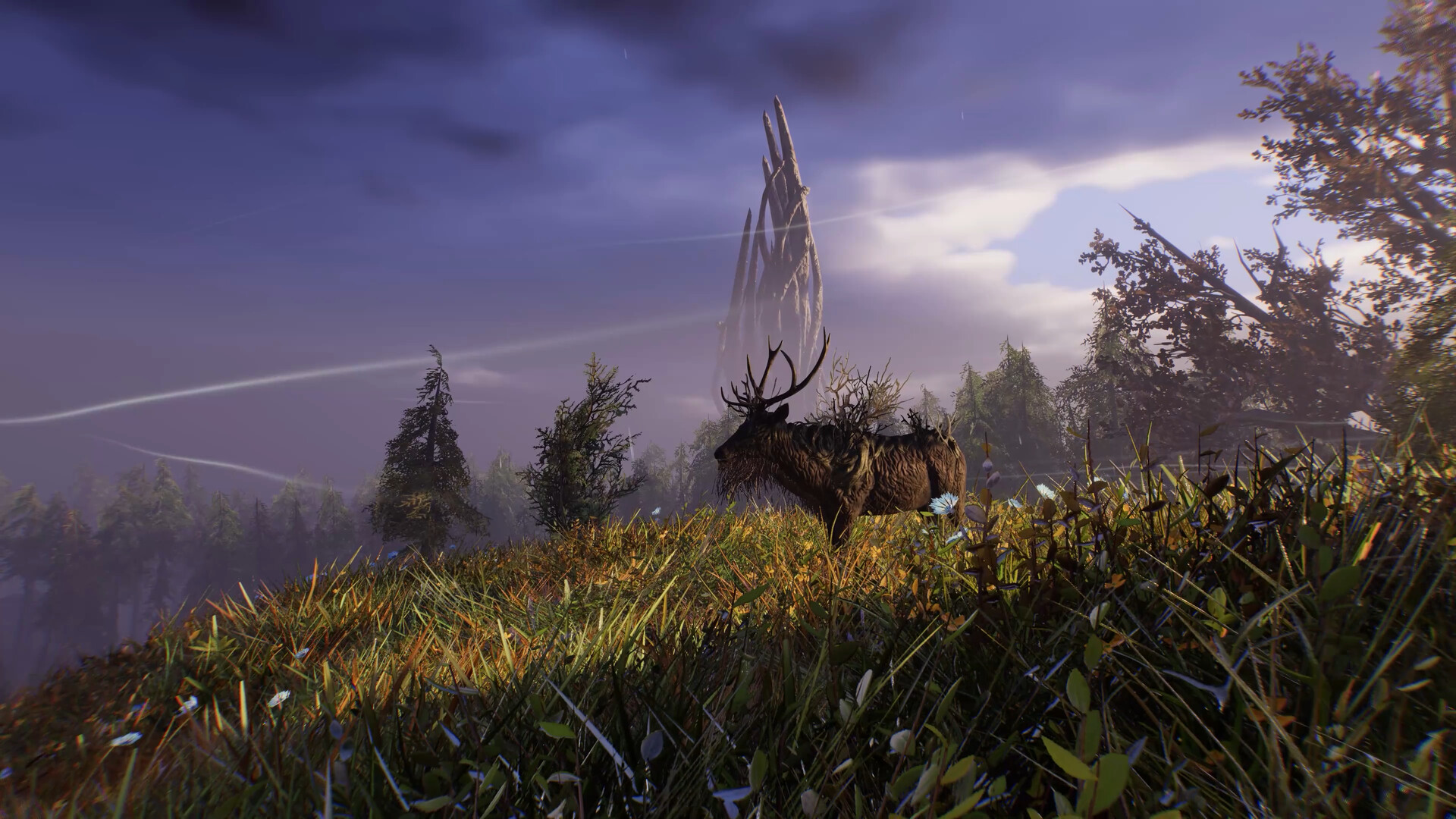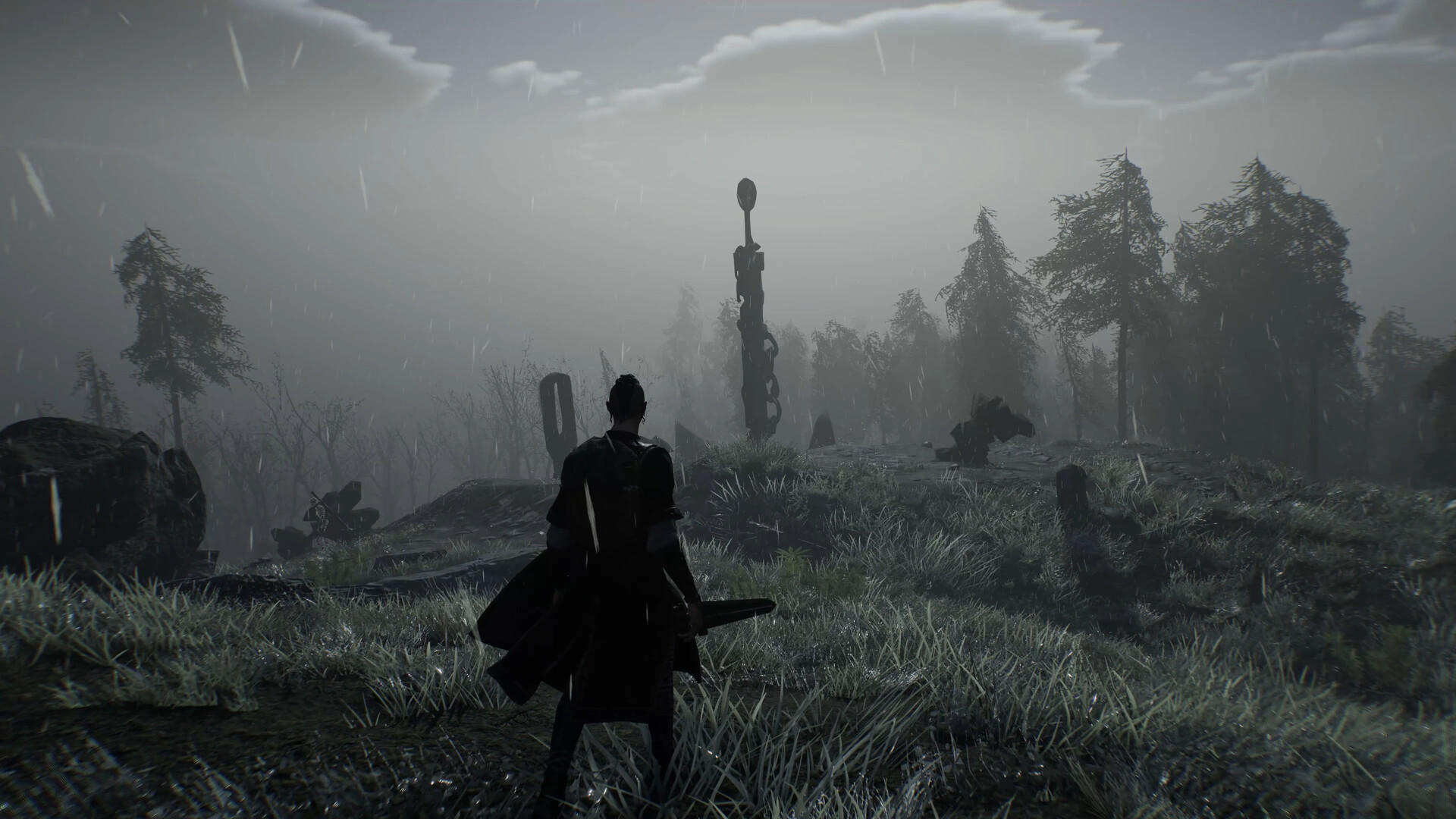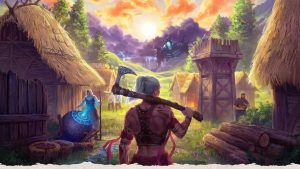
When it comes to the survival crafting genre, there’s no shortage of games, both major and minor. This is especially the case on PC, since the platform is essentially a haven for indie developers. We’ve seen a large variety of survival crafting games over the years, from the absolute juggernaut that is Minecraft, to indie hits like Valheim and V Rising, and even more recent story-focused entries like Enshrouded. Interestingly, just about every popular survival crafting game does something unique to set it apart from its competition, be it the boss fight-centric loop of Valheim, to the power fantasy of being a vampire in V Rising. ASKA similarly offers up its own unique mechanic that builds on top of its survival crafting foundations.
ASKA takes place in a setting quite obviously inspired by viking folklore and fantasy. The story kicks off with your homeland getting destroyed, and your character setting off to create a new home for themselves. Along the way, some gigantic mythical monsters and sea storms cause your ship to get wrecked on a mysterious shore, where you must now set out to build yourself a new home. As far as the story goes, that’s the most you’re going to get out of ASKA. You’re given little in the way of direction unless you enable the tutorial, and are essentially left to your own devices as you start punching down trees and rocks to start making some of your starter gear.
The core survival crafting aspects of ASKA don’t really offer anything unique. The game follows the classic template: make some simple tools with things you find lying around in order to then cut down larger trees and smash bigger boulders in order to get even more materials for fancier tools. Along the way, you’re also going to start building a shelter of some description, starting with a simple campfire and a bed. You’re also going to have to forage for food and drinkable water, since starvation or thirst also carry with them some hefty penalties.
Thankfully, ASKA doesn’t just leave you in the dark about what you’re supposed to do next in order to progress. Assuming you left the tutorials enabled, the game occasionally spawns a mysterious wisp that provides you with some direction for your next steps. At first, this will be as simple as “build a campfire and upgrade it” or “make a stone ax to cut down a tree”. These tips eventually bring you into more complex gameplay mechanics without giving away too much, and this is where we get to talk about the unique hook of ASKA’s core game loop.

"You’re given little in the way of direction unless you enable the tutorial, and are essentially left to your own devices"
While you’re going to be surviving and crafting by yourself in the beginning, soon enough, you’ll bring in villagers to your settlement. This will also eventually lead you to expanding your base of operations, and even turning it into a small town. These villagers are far from just window dressing, however. The villagers are the core method of automation in ASKA. It’s by getting these villagers and stationing them at various workstations that you start automatically getting your hands on simpler materials.
The villager system is quite clever, since once you get a few villagers in your settlement, you don’t really have to worry about getting your hands on the more basic materials like wood and stone anymore; the villagers will be more than happy to help earn their keep by setting out to cut down trees and smash up rocks. This automation goes even further. Since you often have to turn several low-level raw materials into mid-level refined materials, villagers can similarly be tasked to, for example, turning all of the fiber you find into ropes, which can then be used for more complex building recipes.
On the other hand, the same villager system also makes the design for the earlier parts of the game suffer. Getting basic materials, especially in the beginning, can be an absolute drag. Unless you’re a fan of picking up stray stones on the ground, for example, you’re going to want to smash down some of the bigger rocks in your area. And smashing down these big rocks is a surprisingly massive undertaking. Even if you have the right tool for the job, you’re going to spend several seconds—maybe even a full minute—holding down the harvest key as your character chips away at a massive boulder. This aspect makes it feel like you were never really meant to be breaking up these giant rocks by yourself; the villagers are supposed to be handling these menial tasks.

"The villagers are the core method of automation in ASKA."
ASKA doesn’t feel like it’s trying to be a meditative, desolate experience in comparison to something like Valheim. Once you start bringing them in, villagers are going to be running around all over the place in order to complete the tasks you set them on, and aside from maybe the first hour or so, you’re not really going to get the lonesome experience that single player survival crafting games often tend to engender. ASKA also features a multiplayer mode for absolute chaos as well, since each player can essentially have their own villages, with their own villagers running around and farming or cutting down trees.
The exploration is where ASKA starts to really feel like an early access title. Make no mistake; ASKA is definitely a decent looking game, and there are also times when the randomly-generated world will throw out a gorgeous vista for you to stare in awe at. Rather, the fact that there isn’t really much to do in the game when you set out to explore other than maybe find more resources or take down some new enemies. In my time with ASKA, I wasn’t able to find a boss fight to start preparing for like I would in Valheim, for example, and most of the biomes in the game are still relatively same-y, with just different variations on forests and beaches.
There does seem to be a bit of content planned for the game throughout its early access period, however, since the title also features a dynamic weather system that doesn’t really affect you that much, even in the early game, aside from perhaps making you feel slightly colder than you would have otherwise. The core pull in ASKA right now feels like it might just be the building and town management parts. The crafting and building systems on their own are generic enough where it would be difficult to identify the game by those aspects alone in a sea of other survival crafting titles, and the villager system offers up just enough of a unique identity and potential for further expansion down the line.

"The crafting and building systems on their own are generic enough"
As it currently stands, ASKA feels relatively generic when compared to other games in the genre. The title certainly has some decent foundations, and with some tweaks, could even go on to be one of the stronger survival crafting games out there. Currently, however, aside from the villager system where you can automate parts of the game by having villagers gather materials and craft tools for you, there just isn’t enough unique or interesting about the game to warrant spending too much time with it. Thankfully, it’s just an early access release, and ASKA still has plenty of time to expand on some of its more interesting ideas and gameplay mechanics.
This game was previewed on PC.

















Share Your Thoughts Below (Always follow our comments policy!)